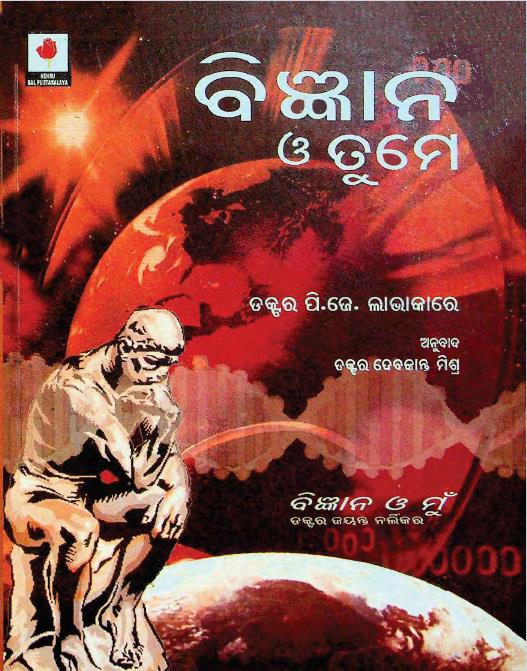In the rich tapestry of literature, essays often serve as a bridge between the realms of thought and understanding, forging connections between science and society. One such remarkable work is Bigyan O Tume, a thought-provoking essay penned by PJ Lavakare and masterfully translated into Odia by Debakant Misra in 2005. This essay not only delves into scientific reasoning but also critiques prevalent superstitions, prompting readers to evaluate their beliefs through the lens of rational thinking.
At its core, Bigyan O Tume extols the virtues of scientific inquiry as a potent tool for deciphering the mysteries of the universe. Lavakare argues that science is not just a body of knowledge but a methodology — a way of questioning, observing, and understanding the world around us. He posits that through systematic inquiry, mankind has achieved remarkable advancements, from medical breakthroughs to technological innovations. The essence of his argument is simple yet powerful: science empowers individuals by enabling them to discern fact from fiction, reality from superstition.
One of the standout features of Lavakare’s essay is his candid discussion of superstitions deeply rooted in societal norms. He highlights various practices, passed down through generations, often cloaked in tradition yet devoid of empirical evidence. For instance, Lavakare mentions common superstitions related to omens, rituals, and health practices that many adhere to without questioning their validity. By interrogating these beliefs, he invites readers to reflect on their own acceptance of unproven assertions and encourages a move toward skepticism and inquiry.
The importance of education in dispelling ignorance is a central theme in Lavakare’s narrative. Education, according to him, plays a crucial role in fostering scientific temper among individuals, especially in communities where superstitions thrive. He champions critical thinking and rational discourse as essential tools in the fight against the blight of superstition. This message resonates deeply in Odisha, where rich cultural traditions often intersect with irrational beliefs.
Debakant Misra’s translation serves as a conduit for these vital ideas to reach a broader audience in Odisha. Misra’s adept handling of the language captures the essence of Lavakare’s thoughts while ensuring cultural nuances are preserved. The translation makes the text accessible, allowing Odia readers to engage with these essential discussions on a personal level.
Furthermore, Bigyan O Tume is not merely an academic exploration; it is a clarion call for introspection and change. Lavakare emphasizes that the pursuit of knowledge and understanding should be lifelong endeavors, urging individuals to remain curious, question dogma, and engage with the world scientifically.
In conclusion, PJ Lavakare’s Bigyan O Tume with Debakant Misra’s translation, emerges as a significant contribution to Odia literature and scientific discourse. It inspires readers to break free from the chains of irrationality and embrace the liberating power of science. This essay serves not just as an intellectual exercise, but as a beacon of hope, illuminating the path towards a future where knowledge triumphs over superstition, and inquiry leads to enlightenment. As readers engage with its insights, they are reminded that the journey of understanding is as crucial as the knowledge itself.
Books Info
| Books name | Bigyan O Tume/ବିଜ୍ଞାନ ଓ ତୁମେ |
| Author | PJ Lavakare; Debakant Misra, Tr. |
| No Of pages | 129 |
| Publisher | NA |
| Publication | 2020 |
| Printed At | Na |
| Distributor | NA |

